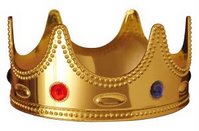
Hey everybody,
I posted awhile back about a book I am reading in college called World's Apart: The Unholy War Bewteen Religion and Science written by Karl Giberson. The first four chapters were great, but starting with chapter five, his anti-creationist views come out. It's actually really sad, becasue he was raised a creationist but rejected the views in college (how surprising...not!). Anyways, here is the assigned question I had to answer on the book. I have no idea how my views will be taken by my prof, but I had to be honest.
Anyways, enjoy and tell me what you think...Steve
Assignment:
Based on what you have read in the Worlds Apart answer the following question in at least 500 words:
Summarize the author's view of scientific creationism. Why does Giberson believe that creation science is bad science? How does Giberson reconcile modern scientific findings of the origin of life with the Genesis account? Does this challenge your worldview?
Response:
Giberson presents his view of scientific creationism in a rather unscientific way. His clear, level-headed writing seems to flee from him as enters into the fifth chapter of his book. No longer is he interested in honest facts alone, but instead he deems it necessary to jump on the back of a Christian organization. I found this rather interesting, specifically considering that he said that the organization consists of men who “attack...fellow Christians” (Giberson 114). As I read the four long chapters of five through nine in Giberson’s book, I began to wonder who was really beating their “ploughshares into swords”—scientific creationists or Giberson (118)?
Giberson believes that scientific creationism is bad science because he has come to believe that the Bible cannot be taken literally. Whether he believes that the Bible can be taken literally at any time in any place was not specified, but he was clear on the point of his view about the creation story in Genesis. “The writer [of Genesis] is...a deeply involved and inspired author,” he says, “who is communicating profound truths that are deeply meaningful to him” (157). Quite obviously these “truths” are not relevant in today’s world and have no bearing on modern science (something Giberson says a several times throughout chapters five through nine). To Mr. Giberson, these “truths” were important only to the author of Genesis, even though they are in the book that Christianity is built upon—making its contents demonstrably relevant to all believers through all of time.
His argument is further proved inconsistent when one considers his complaints against creationists in general and the Institute for Creation Research in particular, “Creationist experts...[are] all writing outside their field...this [is] the problem with scientific creationism” (175). Yet, looking at Mr. Giberson’s qualifications on the back of his book, we find that he holds a Ph.D. in physics and a B.A. in philosophy. Nowhere is theology mentioned. Thus, throughout most of chapter eight he is “writing outside of his field,” discussing such matters as what literary form the first chapters of Genesis should be interpreted in. By his very own writing he discredits his arguments. I found further reason to doubt his argument when I researched the scientists at ICR and found that not only are their degrees legitimate (and from such prestigious colleges as Princeton, University of Kansas, and Texas Tech, just to name a very few), but that they do write within their fields (“Research” n.p.). In fact, in my search of the ICR website (which lists dozens of creationist scientists), I did not find any papers that were written by an author outside of his field. Mr. Giberson’s arguments appear to be founded either on a small number of author’s works or entirely outdated (Worlds Apart was published more than a decade ago, in 1993).
Giberson is surprisingly unclear when it comes to reconciling his views of modern science with the origin of life accounted in the Bible. He preferred to discuss ways that the creation story can be interpreted than to state his exact views on the subject. Much of the four chapters we read this week is more of a discourse on why creationism cannot possibly be true than anything else. His arguments failed to change or even challenge my worldview because he lost my respect early on. His argument lacked force because he used such tactics as circular reasoning, attempted discrediting of his “opponent,” and faulty generalizations. There were also several instances when he made it appear that creationists were in opposition to a certain point, then turned around and acknowledged that they believed the same thing as he did. These things left me wondering how this book could even be considered a college textbook worthy of standing unchallenged (by other textbooks) in a class.
Works Cited:
Giberson, Karl. World’s Apart: The Unholy War Between Religion and Science.
City:
“Research.” ICR.org. Institute for Creation Research, 2006.
<http://www.icr.org/research/index/research_creationsci/> Path: Scientists in the
Physical Sciences; and Scientists in the Biological Sciences.





